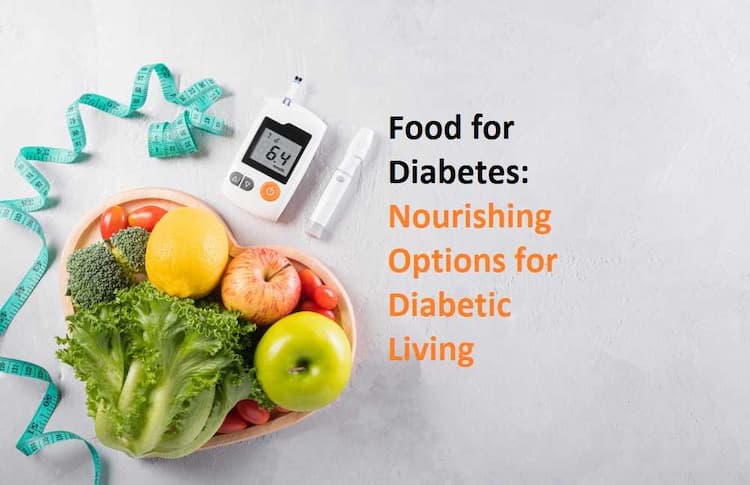Best and worst time to eat dinner for diabetics

Medically Reviewed By
Dr. Ragiinii Sharma
Written By Prekshi Garg
on Dec 19, 2022
Last Edit Made By Prekshi Garg
on Mar 18, 2024

While glucose, your body's main energy source, is necessary for it to function, consuming too much sugar can have dangerous consequences like diabetes.
When it comes to protecting those who are at risk of developing type 2 diabetes, researchers and other experts have up to this point mostly concentrated on the impact of dietary decisions.
Numerous studies have indicated that eating healthily can help people maintain a healthy weight and prevent glucose intolerance, a sign of diabetes that is characterized by the body's inability to metabolize blood glucose (sugar).
Eating your final meal of the day earlier in the evening may be one strategy to help your blood sugar levels as well as your general health. But exactly when is the best and worst time to have dinner for diabetics?
Read on to know more about the best time for dinner, what is a good diabetes diet and the worst time to have dinner. We also cover the relationship between insulin and meal timings, the gap between meal timings, as well as the benefits of eating early.
Diabetic Meal Plan and Insulin: The relationship
Controlling your blood sugar is your major priority if you have diabetes. It will be far less likely for your blood sugar to peak and valley if you have a diabetic diet plan for when you eat and when you take your insulin. Your medical team and doctor will work with you once they determine that you have diabetes on:
- what you ought to eat
- what medications you require
- How frequently should you test your blood sugar?
- Exercise's function in weight loss
Significance of a good diabetic diet plan
When consuming insulin, timing is crucial and therefore you need a well-planned diabetic meal plan chart as its pertinent that your meals must, among other things, coincide with your insulin dosage. How much and how soon sugar enters your system depends on what you consume. Bread and potatoes are examples of carbs, which produce the greatest and quickest effects. But the timing of your meals is as vital.
Your blood sugar will remain stable if you eat the same quantity of food (particularly carbohydrates) at the same time every day. Another advantage is that you're more likely to eat healthily if you schedule your meals at regular intervals according to a diabetic diet chart. When you're starving, you could eat anything is nearby, even if it's not healthy for you. Or you might overeat.
Diabetic Meal Plan Chart
The menus and timings need not be determined by you. Your physician might refer you to a nutritionist or a dietician, who can help you develop a personalized diabetic meal plan chart. Your dietician will assist you in finding foods that you enjoy and that meet your budget in addition to considering your nutrition.
You might wish to write out a daily action plan that will help you remain on track after your doctor and dietitian assist you plan your meals. Build it around particular, realizable things. It can specify that you'll have a healthy afternoon snack (like fruit) on particular days of the week. Or it may instruct that on given days of the week, you’ll count the carbs that you eat at dinner.
Meal times in Diabetes
A diabetic diet plan that is followed throughout the day is essential for effective diabetes treatment. This is primarily due to the fact that blood sugar levels change throughout the course of the day, such as after meals and during physical activity. So it's crucial to have a healthy routine in order to maintain steady blood sugar levels.
The majority of diabetics should have a diabetes diet chart that spaces out their meals throughout the day as follows:
- Within an hour and a half of waking up, eat breakfast.
- following that, eat a small meal every 4 to 5 hours.
- If you feel hungry in between your meals, you can eat a snack.
- Having a snack before bed may be beneficial.
Best Time for Dinner, Glucose levels & Diabetes
Planning your nutrition, eating at a set time and a diabetes diet chart, are essential if you have diabetes. Inducing nocturnal glucose intolerance, or raising blood sugar levels at night, is the result of a late dinner.
People who don't wait long enough between supper and bedtime or who go to sleep straight after dinner are more likely to experience this. So the best time to eat dinner is by 7 PM if you want to control your blood sugar levels so that you can go to bed by 10 PM and wake up the next morning after having restful 8 to 10 hours of sleep.
While nocturnal glucose intolerance is concerning, nocturnal hypoglycemia (low blood sugars at night) is another concern. Nocturnal hypoglycemia, or low blood sugar below 70 mg/dL, is a problem for insulin-dependent individuals, people with type 1 diabetes, and those with type 2 diabetes that is not under control.
In order to prevent nocturnal hypoglycemia, persons who take insulin are typically provided lower doses at night. Although this type of hypoglycemia is unrelated to mealtime, you should still have an early dinner.
Always eat meals promptly, leave two to three hours between dinner and night, and go for a stroll after dinner as these practises will all aid in the metabolism of sugar and help to maintain levels.
Best Time To Eat Dinner
Eat dinner early in the evening as one strategy to maintain lower blood sugar levels. It has been shown that eating your last meal of the day earlier will improve glycemic management and lower blood sugar levels throughout the night. People who ate dinner at 6 p.m. were more likely to have healthier blood sugar levels than people who ate their final meal of the day at 9 p.m., according to a 2021 study. The group that ate dinner later had greater blood sugar levels throughout the night compared to the group that ate supper earlier.
The study determined that the effects on blood sugar were partially based on a longer length of time between the final meal of the day and the first meal of the following morning. The study called the activity of taking the last meal of the day at an earlier time as, "early time-restricted eating (ETRE)". Compared to dining at 10 p.m., which may be the worst time to have dinner, around 6 p.m. is the best time to eat dinner to experience reduced blood sugar levels. Moving your dinnertime up a few hours and trying the ETRE practise may improve your health outcomes, including lower blood sugar levels in the short and long term, for people wishing to dabble in intermittent fasting.
Benefits Of Eating Early
Not only can eating dinner early lower blood sugar levels, but it can also help with weight control, improved sleep, and the avoidance of diseases like diabetes and heart disease. Eating earlier in the day has been reported to improve weight loss, whilst eating later in the evening has been connected to a decreased ability to burn fat. One justification for this is that eating earlier allows your body more time to digest your meals before bed. You may suffer greater indigestion and acid reflux before turning in for the night if your body is unable to finish digesting, which can impair the quality of your sleep.
Your last meal should not be eaten too close to bedtime, but you should also be conscious of the liquids you drink. It's advised not to take caffeine four to six hours before bed because it can seriously impair your sleep. As a stimulant, caffeine can make it hard to fall asleep and cause insomnia or nighttime awake. Unreliable and poor-quality sleep has been associated to higher blood sugar levels when regulating blood sugar levels. This means that the advantages of eating dinner earlier can be negated by a late-night cup of coffee or caffeinated tea.
Metabolism, sleep and the body clock
Our sleep-wake cycle, also known as the circadian clock or body clock, occurs every 24 hours. The body and brain work together in harmony thanks to this rhythm or pattern. The environment serves as a cue for the brain to guide the body's behavior at specific times. The brain and body respond to light cues (and dark).
Thus, the brain receives signals from light (sunlight) to control body temperature, release specific hormones, speed up metabolism, and maintain alertness and wakefulness. On the other hand, melatonin, a hormone that induces sleep and lethargy, is secreted by the body at night or when it is dark outside.
This proves that as the day wears on and the transition between day and night occurs, our metabolism slows down. Our body, therefore, burns the most calories during the day and the least at night.
Even if you try to eat fewer calories late at night, eating a late meal is linked to weight gain and elevated blood sugar levels, according to a study printed in the Journal of Clinical Endocrinology & Metabolism by the Endocrine Society.
Additionally, eating a late dinner slows down the metabolism of fat and raises triglyceride levels. The study came to the conclusion that this might be a contributing factor to obesity and weight increase.
Gap Between Meals : dinner and breakfast
Your body enters a fasting mode when you go to sleep after dinner. Numerous physiological processes occur during this phase. A sleep cycle of 8 to 10 hours is ideal since it reduces calorie intake, enhances cardiovascular health, and speeds up metabolism (though slowly).
A prolonged calorie restriction at night may also enhance gut health, lower inflammation, and reverse obesity and diabetes, according to some research.
However, your body would require energy or glucose when you woke up in the morning. To provide your body the calories it needs for the most energy possible and to speed up your metabolism, it is advised that you have breakfast within two hours of waking up.
Synchronising your eating and sleeping cycles
To support your body's ability to sleep, recuperate, and efficiently burn calories, you must coordinate your meals with your sleep and wake times. While eating dinner early is the general recommendation to start, there are a few more things you may do-
Be consistent with your mealtimes- Whether you decide that best time for dinner is at 7 PM, 8 PM, or 9 PM, choose a schedule and stick to it. This will allow you to keep a two- to three-hour window before going to bed. Your metabolism can be harmed by eating a late dinner and putting less time between your final meal and bedtime. On the other hand, maintaining a regular eating and sleeping schedule and synchronising your circadian rhythm improve metabolism.
Give your body some essential rest- Help your body repair, rest, and recover after meals with TLC. At least two hours before going to bed, try to avoid eating anything.
Maintain a window of 10–12 hours between two substantial meals- If you work night shifts and are unable to keep your optimal dinner time between 7–9 PM, try keeping a window of 10–12 hours between your dinner and breakfast.
Have a proper diabetes diet- To prevent sugar cravings from developing after a stressful night shift, try eating more fiber- and protein-rich foods throughout the day.
Maintain Sleep Hygiene- If you are eating dinner early, make an effort to keep up a regular sleep schedule and decent sleeping habits. After dinner, between two and three hours later, press the snooze button.
If you have been living an unhealthy lifestyle up until now, we are aware that it can be challenging to align your eating and sleeping routines. However, it's worth a shot. Work out a backward strategy if you find it difficult to maintain a constant dinnertime. Try not to eat anything until at least three hours before ten and finish your meal suitably if, for instance, you must get up at six in the morning and go to bed at ten in the evening for an eight hour sleep.
Being up late at night can result in binge eating, which adds extra calories and fat to the body. Many things, including stress, exercise, job schedules, caring responsibilities, and screen time, affect how well we sleep. If you have difficulties sleeping and have inconsistent (or late-night) eating patterns, it's definitely worth checking out.
Frequently Asked Questions
When does blood sugar peak during the day?
For patients with diabetes, the dawn phenomenon is an early-morning increase in blood glucose, also known as blood sugar. Hyperglycemia, or high blood sugar levels, is a
result of the dawn phenomenon. It normally takes place between 4 and 8 in the morning.
It's unclear what causes the dawn phenomena. Some scientists think that the nighttime release of some hormones, which occurs naturally, leads to an increase in insulin resistance. As a result a spike or increase is observed in the blood sugar levels.
When should people with diabetes stop eating?
Try to avoid eating for 10 to 12 hours each night. For instance, if you eat breakfast every morning at 8:30 a.m., you should limit your evening meals and snacks to between 8:30 and 10:30 p.m. every night.
What is the low blood sugar-related somogyi effect?
Every night between 2:00 and 3:00 a.m., glucose levels significantly decrease. In response, the body releases hormones that cause blood sugar levels to rise once more. These hormones may be released excessively, which might cause morning blood sugar levels to be high. A snack before bed can minimise the Somogyi effect by preventing blood glucose levels from falling dangerously low during the night.
Conclusion
Would you believe if there was a straightforward trick you could do to manage your blood sugar, lose weight, and sleep better? The good news is that you can attain all of these advantages and more if you eat dinner earlier in the evening. On the other hand, skipping meals or eating late at night might have negative consequences, such as raising blood sugar levels. Maintaining consistent eating patterns throughout the day can support circadian rhythms and contribute to the best possible control of diabetes and health.
You will gradually adjust to walking the healthy route and making some behavioral modifications, even though it may initially appear challenging.



